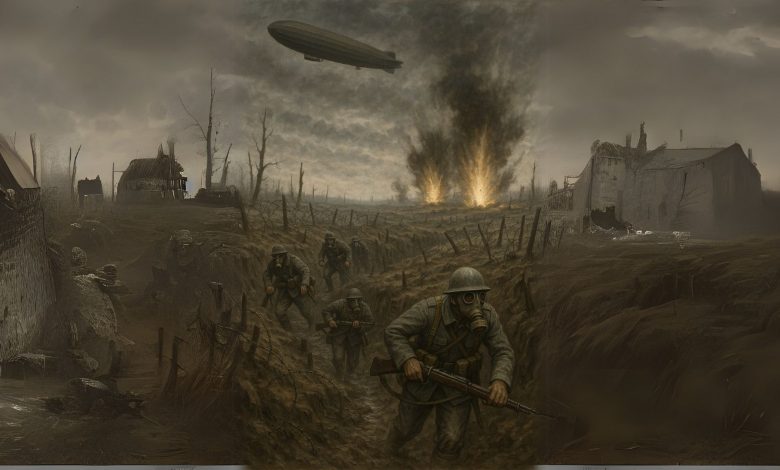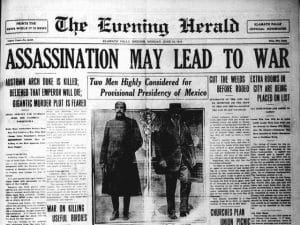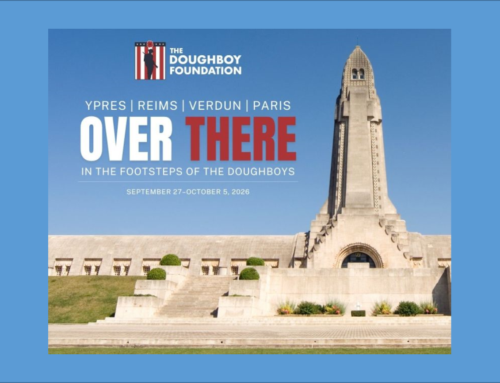World War I: The Story of a Global Catastrophe
Published: 9 June 2025
By Tufan Özdemir
via the OK, But Why? website

World-War-I-780×470
World War I was a war of such magnitude that it caused a global catastrophe. There have been many bloody wars throughout history. This was the case even before states. Even when living in tribes or small groups, people considered other groups as enemies and did everything they could to destroy them. After states were established, ancient wars that are the subject of movies like “The 300 Spartans” were fought today. Although it would be logical to think that as history progressed and people became more modern, these wars would decrease or that there would be fewer deaths, the results were unfortunately not like that. When the calendar showed July 1914, World War I, the bloodiest war in the history of warfare, began.
How Did This War Come About?
As we are familiar with from high school history classes, World War I began when opposing blocs that had been forming for a while heated up one day with the assassination of the heir to the throne of Austria-Hungary. At least, that is how we were told. Of course, this narrative is extremely superficial and incomplete. For example, how the blocs were formed up until that time, the disagreements between them, additional plans, etc., are generally not mentioned. Therefore, the first part we will focus on in this article will be the factors that led to this war, and then we will examine the war in general terms.
This war was actually in preparation since the 1870s. World blocs were forming and disagreements were emerging for almost 45 years. The most important reason for this war was Germany’s completion of political unity. Both Germany and Italy were made up of small states in the form of principalities. Although these states often met on common ground and acted together, they were not fully integrated. This forced them to submit to states such as Austria, France, and England. After 1850, an instinct emerged in both groups of principalities. This was to grow with the development of capitalism and colonialism. Things were a little easier for Germany because there was a powerful Prussia, one of the most well-known German principalities. Prussia managed to unite the principalities by showing its power, and Germany was founded in 1871.
Countries like France, Denmark, and Austria were fought and united under the leadership of the legendary German Prime Minister Otto von Bismarck. In fact, not all of the principalities wanted to unite. This was something Bismarck knew. For this reason, Bismarck played his cards very well for a long time. While he was ruling the country, the king gave Bismarck full authority. Bismarck was a smart and moderate leader. He kept Germany away from excesses and ensured that smart alliances were formed against France, his biggest rival. Bismarck was very close to Austria from the very beginning. He ensured this closeness so well that even in the war, 40 years later, Austria was on Germany’s side under the name of Austria-Hungary. In addition, Germany wanted France to be left alone in a possible war. For this, Bismarck first took Austria to his side, but there was another country that France did not want to get close to: Russia.
Bismarck knew that France could not get close to England. England and France were at odds with each other on the issue of colonies. Therefore, he did not worry about that issue. Spain had never been very close to these issues anyway. If you say Italy, it was not even a neighbor of France. It was difficult for them to help each other, and Italy was not very strong. All that was left was the France-Russia alliance, with which he would officially be toast. For this, Bismarck acted first and took Russia with him. In this way, the first three imperial teams were formed. There were Austria, Russia, and Germany, the brains of this alliance. In this case, France was really alone. However, it did not take long for Russia and Austria to agree on the Balkan lands of the Ottoman Empire, and therefore, Russia withdrew from the alliance.
Although Bismarck was upset about this, he did not give up on Russia and when the Balkan issue was resolved a little, he took Russia back to his side, but this situation did not last long. In other words, Germany could not keep Russia at the same table with Austria. Bismarck’s intelligence was also ready to overcome this situation. For this reason, Bismarck took Russia directly to his side without making an independent alliance with Austria. In this case, you can think of two friends who do not get along with each other. As Germany, you do not want to lose these two friends. Although you cannot invite both of them to the same environment, you can at least ensure that both of them support you in a possible fight, and you can be sure that they will not go to the opposite group. This clever tactic really took Germany to the top of European politics for a while. Maybe England is crossing your mind. Where are they? Wasn’t it the most powerful state in Europe? Yes, but England’s mind was not on Germany. England was both immersed in its search for colonies and trying to keep Russia from eating the Ottomans in one bite. These two difficult tasks kept it away from a third task. Bismarck was already counting on this. He was putting his bold moves into action one by one without the king noticing. Germany made the final blow by taking Italy with it. The relationship between Italy and France was also tense. Italy knew that France also had its eye on its own lands and the lands it had its eye on. For this reason, it quickly went to Germany.
You may be thinking, “Okay, but in World War I, only Austria-Hungary was left on Germany’s side? No Russia or Italy?” That’s a very good question. This mystery is about to be solved.
→ Read the entire article on the OK, But Why? website here:
External Web Site Notice: This page contains information directly presented from an external source. The terms and conditions of this page may not be the same as those of this website. Click here to read the full disclaimer notice for external web sites. Thank you.





